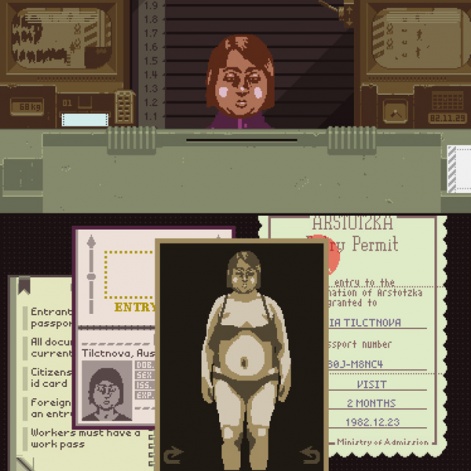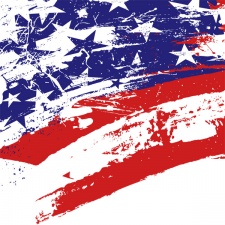Censorship is a white-hot issue in the gaming world right now.
Games have been pulled from sale or restricted due to disagreements over their content, including Grand Theft Auto 5 being pulled from retailers in Australia, and controversial mass-murder game Hatred being pulled and then reinstated on Steam Greenlight.
Of course, the Apple App Store has had plenty of brushes with censorship too, with the most recent case being minor nudity in Papers, Please resulting in the game's initial rejection.
The interesting thing is that some people don't think these cases are forms of censorship.
I believe they are, but because they are complexed and nuanced issues, dealing with the separation of "what you are allowed to do" versus "what you should do as a responsible member of society" often gets lost in character limits in online discussion.
Indeed, my view is that while censorship can be limited, and even in some cases can be ultimately beneficial to society, game developers and critics should be wary of defending the restrictions of these games.
Define your terms
It says much about the situation that the definition of censorship is itself a problem.
Some people believe that it only refers to a governmental entity restricting work. However, I view censorship as being when an entity decides they dislike some work and have it altered or restrict its access in any form or in any scope.

If you see censorship as only controlled by the government, then how do you define, say, cable TV channels bleeping profanity when they don't legally need to? Censorship is merely the description of an action undertaken, and often needs an adjective in front of the word to describe the scope of the action. Governmental censorship is a whole different deal from private censorship.
On this basis, Apple requiring the removal of nudity from Papers, Please was a form of censorship. It was a misunderstanding, but it was effectively an act of censorship.
GTA5 being banned from Target in Australia was a form of censorship. Hatred being pulled from Steam (before being reinstated) was a form of censorship. These are all true in a mechanical sense.
Ends and means
The thing is, something being censored isn't always a crucial element in terms of the meaning of content.
Papers, Please losing its nudity was seen by developer Lucas Pope as not a "serious burden on the game". It took away some of its impact, but not all of it.
It's still censorship, but it should be regarded with a measured response of "That's unfortunate but not worth making a huge fuss about." Perhaps me writing about it is ironic, but I see this as a jumping-off point for a discussion about Apple's policies on the App Store.
Censorship is always bad in some form because it is a restriction on the social ideal of free expression, but it is a two-way street. There may be some things so objectionable that we want to make as difficult to obtain as possible.

For example, we can decide that certain pornographic material should be controlled, at least in terms of the age of the audience. It's a form of censorship, yes, but one where we can say that the benefits outweigh the drawbacks.
Equally, I believe that private distributors are well within their rights to not sell something that they legally could to sell. Artists are free to express themselves, and businesses are free not to support them, the same way that a customer has the right to not buy a game if they disagree with its content.
So I don't believe that it's a problem Valve thinks some games are offensive and unwanted on their platform. They have the right to pull a game if they want.
Power of the platform
So creators have the right to create works of art, but they don't have the right to open distribution.
In the manner, on desktop and Android platforms, I have little issue with individual distributors not selling a game they don't want to, because that game will be available in other stores.
Creators have the right to create works of art, but they don't have the right to open distribution.
I take more issue with the App Store, because Apple makes it virtually impossible to distribute anything on their platform without their approval. But even then, there are other open mobile platforms to distribute games on, so I don't think it's a move of book burning magnitude when Apple censors content.
On a wider point, it's an inherent beauty of digital distribution that as Jerry Holkins of Penny Arcade pointed out, "...it never occurred to me that digital delivery could be a hedge against censorship...", and he is correct.
It is pretty much impossible these days to really utterly obliterate any objectionable material from view. There's so many ways to distribute and obtain copies of works of art in different forms, that any form of censorship is increasingly limited.
Ultimately, then, it all comes down to the nuance between what an entity has the right to do and what they should do. It comes down to the libertarian value - as enshrined in the American constitution - and summed up in the alleged Voltaire quote "I do not agree with what you have to say, but I'll defend to the death your right to say it."
I support the idea that stores have the right to not sell certain works due to certain criteria. But I don't really think that they should do it.
Defending scoundrels
Indeed, I am saddened by the idea of someone actively encouraging the distribution of material they disagree with. I want each person to be able to decide for themselves what games and media they want to consume and support based on their beliefs and preferences.
In this context, I disagree with Feminist Frequency producer Jonathan McIntosh, as I believe that a distributor, from GameStop to your public library, should be able to take a non-political stance and offer works of many different views, even abhorrent ones.
The trouble with fighting for human freedom is that one spends most of one's time defending scoundrels.
And I fear that in the recent wave of social progressivism, and the defeat of external critics like Joe Lieberman and Jack Thompson in the US, that some game developers and critics have forgotten that they ought to defend free expression in games.
The ideals that allow Hatred to exist are the same ones that allow Depression Quest to exist.
I admit it's overdramatic in the context of video games, but there is a quote popularly attributed to H.L. Mencken, known for his reporting at the Scopes Monkey Trial, saying that "The trouble with fighting for human freedom is that one spends most of one's time defending scoundrels. For it is against scoundrels that oppressive laws are first aimed, and oppression must be stopped at the beginning if it is to be stopped at all."
People who would excuse censorship in any form should remember that they're not always the censor. Coming from my American perspective, I think it's best for as little censorship to happen as possible because I want games and media that challenges my views to exist, I want art that challenges me, that angers me that someone would think that way to exist so that I know why it makes me feel that way.
And I want to decide what's right for me, I don't want Apple or Valve or any government or corporation deciding for me. I want the same for you and for everyone else.
That ideal is imperfect, because yes, it allows for hateful works of art to exist. But I would rather live with those flaws than the one where censorship in all its forms is defended or excused by people who thrive off the rights to free expression that they enjoy.
So, game developers and the media should be the first on the line to defend Hatred, Papers, Please, and whatever else controversial games will be made to exist as their creators intended, and for people to have access to them if they wish, and to be criticized or praised as they deserve.






















